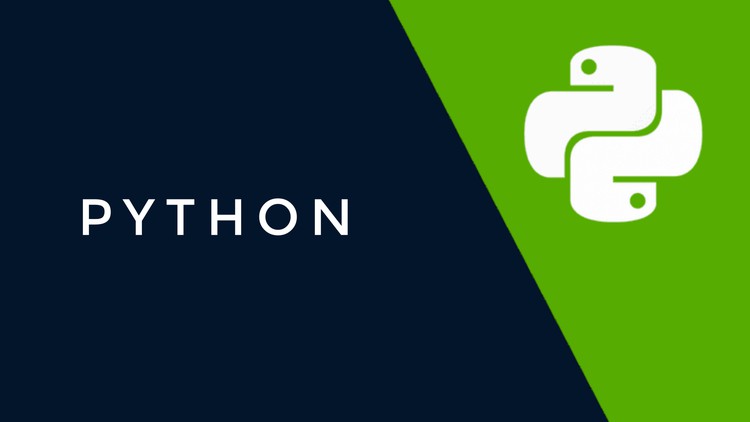Course overview
- Provider
- Udemy
- Course type
- Paid course
- Level
- All Levels
- Duration
- 4 hours
- Lessons
- 31 lessons
- Certificate
- Available on completion
- Course author
- Code Studio
-
- This Course Covers all the Basic and Core Knowledge Required for Python Programmers.
- Python Built-In Database SQLite
- Assignments And Quizzes to Explore More
- How to Read / Write using Excel in Python.
- How to Upload Python Project on Github
- Understand Computer Science Concepts such as Flow Control and Functions.
- Master Object-Oriented Programming and structure your Python programs like a professional.
Description
Welcome to the Python Complete Crash Course!
Learn Python from a software developer. If you want to master Python and write efficient, elegant, and simple code, this is the course you've been looking for!
Even if you have no programming experience, this course will give you a super-strong foundation and teach you how to use Python to achieve any goal. Learn the fundamentals of Python through video lectures, resources and documents. Python is an easy to learn programming language with a wide variety of well-paying jobs in many fields, including data science, web development and network programming. After completing the course, you will also get python certificate.
Topics Covered in This Course :
01 - Introduction
02 - Installation of Python Shell & Pycharm
03 - Basics of Python Programming
04 - Datatypes
05 - Int, Float & Boolean
06 - Operators
07 - List
08 - Tuple
09 - Set
10 - Dict
11 - Control Flow
12 - Function
13 - Other Methods
14 - Files
15 - Exceptions
16 - OOP
17 - Sys, Os & Platform
18 - Datetime, Relative Delta
19 - Random
20 - Regular Expressions
Python Built-In Database - SQLite :
01. Introduction
02. Create Connection to the Database
03. Create Table
04. Insert Query
05. Select Query
Bonus Lectures :
01 - How to Work with Excel in Python.
02 - How to Upload Python Project on Github.
03 - How to Download Youtube Video in Python
04 - How to Draw Graphs in Python
05 - Emotion Detector in Python
Why to Learn Python :
1) Applications of Python :
GUI based desktop applications
Image processing and graphic design applications
Scientific and computational applications
Games
Web frameworks and web applications
Enterprise and business applications
Operating systems
Language development
Prototyping
2) Advantages/Benefits of Python :
Presence of Third Party Modules :- The Python Package Index (PyPI) contains numerous third-party modules that make Python capable of interacting with most of the other languages and platforms.
Extensive Support Libraries :- Python provides a large standard library which includes areas like internet protocols, string operations, web services tools and operating system interfaces. Many high use programming tasks have already been scripted into the standard library which reduces length of code to be written significantly.
Open Source and Community Development :- Python language is developed under an OSI-approved open source license, which makes it free to use and distribute, including for commercial purposes. Further, its development is driven by the community which collaborates for its code through hosting conferences and mailing lists, and provides for its numerous modules.
Learning Ease and Support Available :- Python offers excellent readability and uncluttered simple-to-learn syntax which helps beginners to utilize this programming language. The code style guidelines, PEP 8, provide a set of rules to facilitate the formatting of code. Additionally, the wide base of users and active developers has resulted in a rich internet resource bank to encourage development and the continued adoption of the language.
User-friendly Data Structures :- Python has built-in list and dictionary data structures which can be used to construct fast runtime data structures. Further, Python also provides the option of dynamic high-level data typing which reduces the length of support code that is needed.
Productivity and Speed :- Python has clean object-oriented design, provides enhanced process control capabilities, and possesses strong integration and text processing capabilities and its own unit testing framework, all of which contribute to the increase in its speed and productivity. Python is considered a viable option for building complex multi-protocol network applications.
We will keep adding new videos to the course, so stay tuned and happy coding :)
Similar courses

-
25 hours
-
165 lessonsCertificate

-
22 hours
-
155 lessonsCertificate

-
45 hours
-
320 lessonsCertificate

